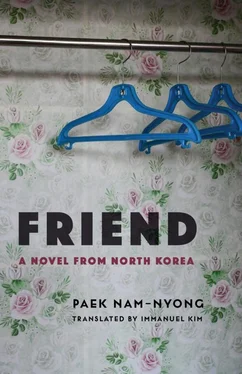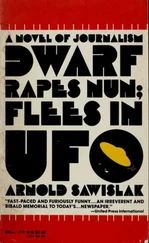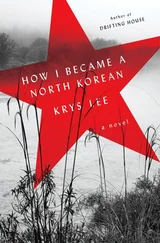The 1970s was a period of heightened literary production, and to this day it remains the decade that saw the largest number of new works published in North Korean history. Two major national campaigns, the Three Revolutions Movement and the Speed Campaign, called on the people to reeducate themselves with the correct ideology, technology, and culture, along with increasing production at a rapid pace. During this period, writers scribbled madly to meet deadlines and fulfill quotas. At the same time, amateurs were encouraged to write in order to display the level of ideological education among the populace. This overproduction of literary works did not impress North Korean literary critics, who criticized the resulting narratives as trite and repetitive with flat characters. It was in this literary climate that Paek Nam-nyong made his debut.
Life and Literary Career of Paek Nam-nyong
Friend is one of the novels I analyze in my book Rewriting Revolution: Women, Sexuality, and Memory in North Korean Fiction , and through the auspices of an independent organization in the United States, I was fortunate enough to be able to travel to North Korea in 2015 to interview Paek. I had sent more than fifty questions for our meeting before my arrival in Pyongyang. I met Paek in the lobby of my hotel, the Haebangsan. We were taken to a conference room where we could discuss my questions and converse about other matters pertaining to his life as a writer. We were scheduled to meet for a day but ended up spending three days together. Most of what follows is drawn from my conversations with him, particularly regarding his personal life. One of North Korea’s most successful writers, Paek was humble, generous, and kind. I purposely refrained from asking sensitive political questions.
Most of Paek’s works reflect his tragic upbringing and difficult journey to becoming one of North Korea’s most celebrated novelists. Born on October 19, 1949, in Hamheung City in South Hamgyeong Province, Paek had not yet turned one year old when his father was killed in an American bombardment during the Korean War. Like most survivors of the war, Paek, his two older sisters, and his single mother lived in poverty. When Paek was eleven, his mother died of a terminal disease, leaving Paek to be raised by his older sisters. As soon as he graduated from high school, he entered the steel industry, learning to turn the lathe and work other heavy machinery. Although Paek claims that he had found his life’s worth at the steel factory, his true passion was reading literature and writing short stories in his free time. These early stories were about his workplace and fellow workers.
After publishing his first short story, “High-Quality Coal” ( Goyeoltan ) in a magazine, Paek decided to major in literature at Kim Il Sung University. He passed the entrance exam and was accepted in 1971. However, instead of moving down to Pyongyang, Paek continued to work at his factory in Hamheung to support himself and took long-distance learning courses. Every spring and fall, he would spend two months in Pyongyang attending classes on campus. During the rest of the year, he would work and study before going down to Pyongyang again. Paek graduated with a bachelor’s degree in Korean literature in 1976 and joined the Jagang Province Writers’ Union near his hometown.
While he was content with his job at the factory, he followed the Party’s Three Revolutions campaign, which called on the people to study political ideology, acquire the latest technical skills, and raise their cultural consciousness through literature, cinema, songs, theater, and collective activities. Paek chose a career in writing to educate his readers on the importance of self-cultivation, which entails lifelong learning, serving the country and the people, abiding by Party doctrine, and participating in collective community initiatives.
After working at the Jagang Province Writers’ Union for many years, Paek received an invitation to join the Writers’ Union in Pyongyang. Paek, his wife, and three children moved to the capital city and adjusted to their new living conditions. However, tragedy revisited Paek when his wife died of brain disease, leaving him to raise his three children on his own.
Paek was later promoted to the April 15 Literary Production Unit, an elite group whose primary task is to write historical novels based on the lives and accomplishments of Kim Il Sung and Kim Jong Il. These books are then published in a series titled Immortal History and Immortal Leadership. The April 15 Literary Production Unit was conceived by Kim Jong Il during the mid-1960s and was tasked with producing the first novel in the series by 1972, in honor of Kim Il Sung’s sixtieth birthday. That novel is The Year 1932 , and it recounts the formation of Kim Il Sung’s anti-Japanese guerrilla army, which had been instrumental in fortifying Kim’s political position during the colonial period. Thereafter, the writers of the April 15 Literary Production Unit produced numerous novels for the series, which continues to be published to this day. Paek’s contributions to the series are in the Immortal Leadership track and include A Thousand Miles to the East Sea (Donghae cheonni) , Prelude to Spring (Bomui seogok) , and Inheritors (Gyeseungja) .
It is important to understand the difference between the practice of giving leaders cameos in a novel and the work of the April 15 Literary Production Unit. The unit is tasked with the specific duty of delineating the historical accomplishments of the leaders. According to Paek, each writer in this group chooses a specific moment in the given leader’s life, researches the relevant revolutionary exploits, and creates a realistic narrative that dramatizes the events.
In his literary work outside the series, Paek demonstrates how people deal with the most mundane (but ever-so-difficult) situations. “Servicemen” ( Bongmujadeul , 1979), “Workplace” ( Ilteo, 1979), and “Young Party Secretary” ( Jeolmeun dangbiseo , 1983) place the protagonists at the heart of workplace conflicts, in which they must deal with coworkers who prioritize certain self-interest groups over the welfare of the collective. Both After 60 Years ( 60 nyeon hu , 1982) and “Life” ( Saengmyeong , 1985) reveal political corruption among colleagues and their self-aggrandizing ambitions to succeed in life at the expense of others. The heroes in these stories do not transform society into a socialist paradise. Instead, Paek identifies these problems in his society and creates characters who struggle but eventually choose the righteous path without necessarily imposing the Party’s directives as the only panacea. There are didactic, propagandistic elements, as there are in Friend , but Paek’s first concern in the majority of his work is individual ethical responsibility, a topic applicable to members of any society, culture, or nationality.
On Writing Friend
The premise of Friend is based on observations Paek made of divorcing couples while he was working at the Jagang Province Writers’ Union. His office was located on the top floor of a three-story building. The first floor was the municipal court, which handled civil cases, where couples would line up to file for divorce. He observed these divorcing couples for more than a year and regularly attended the court hearings. He befriended the presiding judge (the basis for the protagonist in Friend ) and gathered detailed information about past cases. He took note of the judicial procedures and the legal language. He also witnessed the pain of divorce and the toll it took on the children, if there were any involved. Through his inadvertent field research, Paek had found the material for his novel. He decided to write Friend in a way that would reach deeper into the emotional and psychological world of his characters than any of his other stories.
Читать дальше












